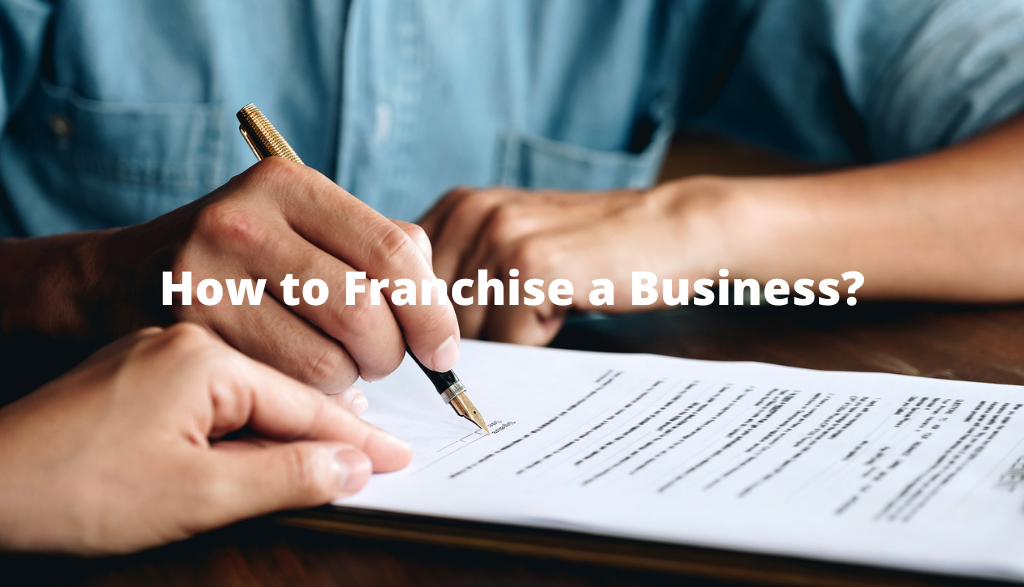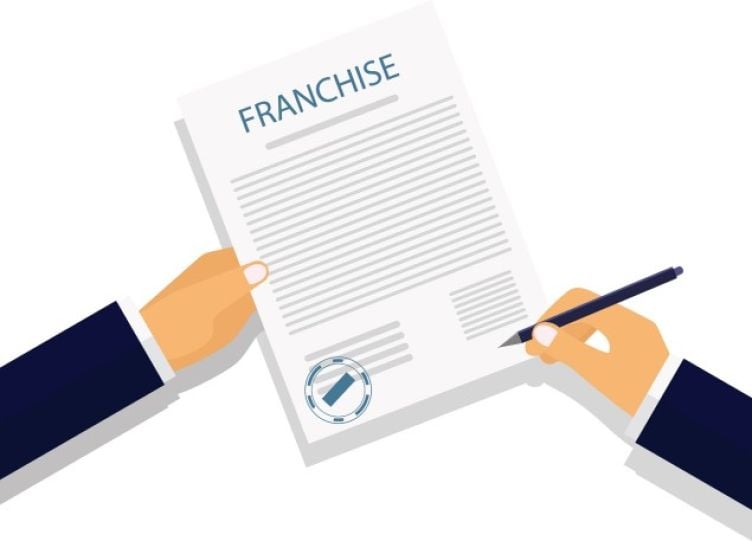How to Franchise a Business?
24 Nov 2023
20 Dec 2022
min read

Have you created a successful brand? Do you want to share it with the world? If so, you’ve probably considered growing your business through franchising. So, how do you franchise a business? Let's start with the basics.
What is Franchising?
Franchising occurs when a business owner (the “Franchisor”) grants others (the “Franchisees”) the legal right to replicate the Franchisor’s business name, model, systems, and processes in exchange for certain fees. Franchising is regulated primarily by federal law (“The Franchise Rule”) and occurs when any written or oral deal includes the following three elements:
- The buyer will obtain the right to operate a business that is identified or associated with the seller's trademark, or to offer, sell, or distribute goods, services, or commodities that are identified or associated with the franchisor's trademark; and
- The seller will exert or has authority to exert a significant degree of control over the buyer's method of operation, or provide significant assistance in the buyer's method of operation; and
- As a condition of obtaining or commencing operation of the business, the buyer makes a required payment or commits to make a required payment to the seller or its affiliate.
Franchising occurs when these three elements are present, regardless of what an agreement is called. The nuances often require navigation by experienced legal counsel. A business can face serious legal consequences for intentionally failing to properly franchise or even for accidentally creating a franchise.
States also regulate franchising by imposing certain registration, filing, and renewal requirements specific to franchisors, and maintaining certain compliance requirements for disclosures and advertisements.
Understand the basics of franchising? Great. Now, how do you franchise a business?

Follow These 5 Steps to Franchise a Business
1. Evaluate your Existing Business
Franchised brands cover almost every category of products and services. They represent brick and mortar businesses, mobile based businesses, and even online franchises. You see franchise locations every day in the world around you from gas stations to restaurant chains. All successful brands carry one thing in common at their most basic level - the business is easy to replicate. As a business owner, ask yourself:
- Have you developed systems and processes?
- Are your systems and processes easy to follow?
- Can you train others to follow these systems and processes?
- Do you have the funds necessary to franchise and support franchisees?
- Are you committed to the franchise development process?
You need to evaluate your business. Speak to franchise consultants, successful Franchisors, and others with experience in franchising. At Waldrop & Colvin, we advise clients at the onset of consideration and prepare the document sets as fractional general counsel. You should closely examine your business and understand franchising as you begin the process. Roughly 8 out of 10 franchisors never reach 100 locations and many peak before they are profitable. Successful franchising requires the right team and high-level commitment.
2. Protect your Intellectual Property
Does your brand have the protection of a federally registered trademark? Use or association with a trademark is the first legal element that makes a franchise a franchise. Federal protection provides nationwide brand protection as the franchise grows. The business name and logo (the “Marks”) should be protected.
If your business does not have a federally registered trademark, you should begin the process. Not all Marks are eligible for federal registration. An attorney will examine the Mark itself and search for any conflicts. Applications are submitted to the United States Patent and Trademark Office. The review and approval process may take 12-18 months after the application is submitted, or longer.
If you do not obtain a trademark, you will likely need to warn prospective buyers about the risks involved in not having federal protection.
3. Prepare the Legal Documents
The primary legal document for franchising is the franchise disclosure document (“FDD”). The FDD contains 23 separate categories of information on the franchisor. Each category of information is referred to as an Item. The goal of the Franchise Rule is to provide buyers with the tools they need to evaluate the franchisor before making an investment.
According to Charles (Charlie) Barnett, Attorney at Rodriguez-Albizu Law, P.A., the FDD provides a history of the franchisor, the names of current franchisees and those former franchisees who have ceased to be franchisees during the past year. A potential franchisee can then contact those people to determine their experiences with the franchisor.
The 23 Items required in every FDD include:
- The Franchisor and any Parents, Predecessors, and Affiliates
- Business Experience
- Litigation
- Bankruptcy
- Initial Fees
- Other Fees
- Estimated Initial Investment
- Restrictions on Sources of Products and Services
- Franchisee's Obligations
- Financing
- Franchisor's Assistance, Advertising, Computer Systems, and Training
- Territory
- Trademarks
- Patents, Copyrights, and Proprietary Information
- Obligation to Participate in the Actual Operation of the Franchise Business
- Restrictions on What the Franchisee May Sell
- Renewal, Termination, Transfer, and Dispute Resolution
- Public Figures
- Financial Performance Representations
- Outlets and Franchisee Information
- Financial Statements
- Contracts
- Receipts
Just looking at the list can be overwhelming. An experienced franchise attorney can be a substantial asset to your business through the planning and development process. A prospective franchisor should expect to spend several months working with counsel to develop the document set and understand the do’s and don'ts of franchising.
Do you want to see examples of an FDD? You can locate many online. The Wisconsin Franchise Search database is one of the easiest to search.
The extent of disclosures are often hundreds of pages long and contain multiple agreements within the primary document. Operating a successful franchise requires contracts to be in place and protect the brand. The primary contract included in the FDD is the agreement between the Franchisor and Franchisee establishing the right and obligation to operate the franchised business (the “Franchise Agreement”). Other contracts may include separate licensing agreements, noncompetition agreements, confidentiality agreements, lease assignments, or certain authorizations.
According to Andrew Pickett, lead Trial Attorney and Founder at Andrew Pickett Law, franchise companies must provide the FDD to potential franchisees at least 14 days before the signing of any agreement or payment.
While your attorney works with you to get these documents together, you should focus on a plan for operational excellence. The business know-how has to be documented and easily taught to each franchisee. Primarily, Franchisors must develop an operations manual and initial training course.
4. Develop A 5 Year Plan
Every business needs a plan to accomplish its goals and objectives. For franchisors, we recommend a 5 year horizon. This 5 year planning stage is particularly important for franchisors. If you are ready to franchise, you’ve likely proven you can be successful with the business concept and system. That's a great accomplishment, but franchising is all about teaching others to replicate your success. You don’t have to go into it alone. You can work with other franchisors, franchise brokers, franchise consultants, and others in the industry to learn and grow.
5. Execute and Create Happy Successful Franchisees
The proof is in the pudding. Focus on results by validating, developing, and growing at scale.
Validate
Franchisors need validation. The easiest way to obtain validation is through ensuring each franchisee that joins the system is happy and successful. Happy successful franchisees will validate your system and help you sell franchises.
For many franchisors, this means focusing on regional or state growth in the first year or two of operations. It is vital to onboard the right candidates who share your vision and ability to execute. Further, you need to be committed to supporting these new franchisees from an operational component. With 1000 locations, you might not make not make site visits, but for the early stages of growth support is essential.
Develop as a Franchisor
As franchisees learn to operate the franchised business following your model and systems, you will be learning the business of franchising. While you have experience in operating a brick and mortar business, mobile based business, or online business - selling the business model and system is vastly different. We always recommend maintaining a flexible approach and being willing to listen and learn. We all grow every day. Franchising is no different.
Grow
The first franchises are the hardest to sell. If you have great validators, you are on the right path to building brand recognition and growing as a franchisor. Work with advisors to plan for growth and ensure that your operational support grows at the right pace with your franchise development.
DocPro has the following franchise agreements which you may use:
(These documents are not related to the author, Derek Colvin and the following parts do not constitute part of the original blog article.)
1. Franchise Agreement
https://docpro.com/document-form-select/Franchise%20Agreement
This document can be used as a template for a Master Franchise Agreement for operation within a certain territory between a franchisor and the franchisee. We have three forms available based on the party the document is in favour of: neutral, franchiser and franchisee.
2. Franchise Agreement - With Principal
https://docpro.com/document-form-select/Franchise%20Agreement%20-%20With%20Principal
This document can be used as a template for a Master Franchise Agreement for operation within a certain territory between a franchisor and the franchisee where it is also binding on the Principal of the franchises as an individual. We have three forms available based on the party the document is in favour of: neutral, franchiser and franchisee.
Keywords:

